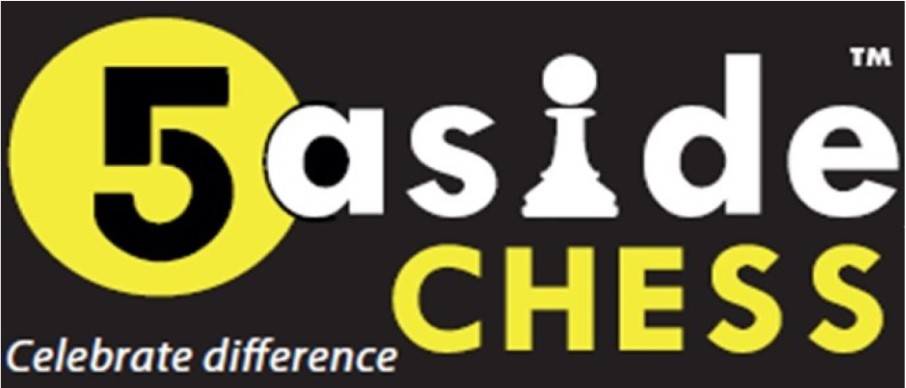Your guide to being a coach to a young person taking a 5asideCHESS journey.
First things first, don’t panic. It is not at all important that you can play chess well. This is about YOU supporting and mentoring a young person on their journey of life and the chances are that you do know something about that.
The #HelpYourSelfGuide is a journey of self-discovery and the 5asideCHESS board is simply a tool to help young people (or people of any age to be honest) to help themselves. We are absolutely not trying to make chess champions here. What we are trying to do is to help encourage people of all ages to be free thinkers and connectors.
Why 5asideCHESS?
We use a 5x 6 square game of chess because it has all the advantages of chess but it is easier to learn, quicker and more fun to play. Chess has many mental health benefits but also, as it is played all over the world, it is effectively a bridge between cultures and ages- an international language that we can all understand.
What they are being asked to do:
To become a 5asideCHESS Master by playing 25 games of 5asideCHESS with as many different people as possible.
To work through the #HelpYourSelfGuide and to think about these key life lessons as they play. The situations we get in to in chess are a physical representation of how we deal with real life.
To be open to learning new skills and to asking questions and listening to the answers.
Why?
To help them to develop real life social skills, make friends and to engage in the real world rather than the virtual world. Social skills are so much more important than social media skills.
To get young people thinking and making decisions for themselves and considering others and the world around them.
To teach them to trust their own thoughts and gut instincts
To get them feeling more focused and less anxious by helping to give them confidence and a sense of purpose.
How you can help
In an ideal world, we really want to encourage everyone to connect and play new people face to face in the real world as this is where real connection happens but we recognise that this is not always possible. Where it is, depending on the age of the age of the young person you are supporting, they will clearly require adult supervision. Encourage the young person to be brave and ask people that they don’t know to help them with their ‘project’ by playing a game. This is all part of overcoming fear and shyness and developing the sort of confidence and social skills which will stand them in excellent stead later in life.
When face to face isn’t possible, they may need to use technology to play some of their games. That could be over the phone, a couple of moves at a time with a game taking place over a few days. Not only is this an excellent way to teach patience, it could be just an excuse to call someone and stay in touch. It might mean playing over zoom or another similar platform. The important thing is that you use technology, it doesn’t use you.
If you know how to play, by all means help them consider their moves and options, but try to let them think for themselves and make their own decisions.
The #HelpYourSelfGuide covers 30 key life lessons that, when learned, will help guide them through life. They are skills which seem to be lacking in so much of society which is becoming more and more disconnected and broken.
As the young person plays their games, encourage them to think about the steps on the guide and to come to you with their questions when they want to. Each step on the #HelpYourSelfGuide is a conversation starter and how you handle their questions is up to you. There is no right or wrong way – We encourage you to share your relevant stories and experiences and what you learned from these in a conversational way.
By the way……
In 5asideCHESS we’ve changed the rules of the game. We’ve done this because we can and so can you. None of us have to stick with the status quo if it doesn’t make sense to us and we don’t want to.
In 5asideCHESS
Black goes first
Takesy backsies are OK in 5asideCHESS as long as you agree a number between you before you start to play. If you realise you’ve made a mistake, it’s OK to change your mind. Show generosity of spirit to your opponent when this happens and they’ll do the same for you. Most people make mistakes along the way and think they have to stick with them because we’ve all been taught the phrase ‘I’ve made my bed so now I have to lie in it’. (Otherwise how will I learn?) They do this despite the fact that it means they’re likely to lose. Just as they do in real life.
The 30 steps to give you super powers
The #HelpYourSelfGuide is divided into six levels each with five steps
- LEARN
- PRACTISE
- THINK
- ASK
- APPRECIATE
- UNDERSTAND
It’s so much easier to absorb and learn these lessons as a child rather than waiting until adulthood when habits are firmly set.
The idea of the guide is not to go through all the steps in one go but to do it slowly, at the young person’s pace with lots of conversations. Answer their questions, ask some of your own (there are examples in each section) and perhaps share some of your own experiences with them.
Full coaching notes with sample questions are available when you purchase the programme.

